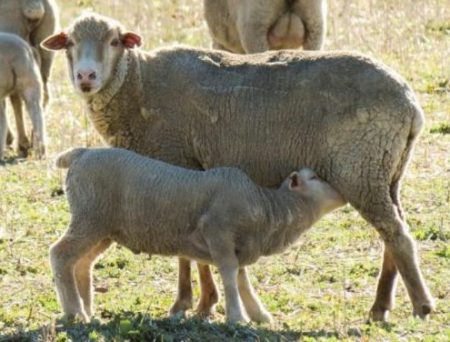
WA livestock producers are being urged to ensure animal ID is up to date.
WESTERN Australian livestock producers are being reminded to ensure the registration and identification of their animals is up to date.
The Department of Primary Industries and Regional Development (DPIRD) are addressing a range of field days and forums around the state about the importance of livestock traceability.
They will be available at the Dowerin GWN7 Machinery Field Days this week to speak with visitors about traceability requirements.
DPIRD senior biosecurity officer Jenae Mondello said livestock traceability systems were designed to enable rapid responses to animal disease incursions.
“A key way for producers to prepare for any biosecurity threat is to confirm their stock owner registration is current and that stock are correctly identified,” Ms Mondello said.
The National Livestock Identification System (NLIS) database records the movement of cattle, sheep and goats across Australia.
“Should Australia be challenged by a fast-moving virus like foot and mouth disease (FMD) or lumpy skin disease, the tracings of infected stock or suspected infected stock will be done using the NLIS database,” she said.
“The speed at which livestock can be identified, tracked and assessed will determine the size, duration and cost of any outbreak, and therefore the impact on producers and industries.
“It is essential that we know which livestock are where, how long they have been there, where they have been previously and the location of any other livestock that they may have been in contact with,” Ms Mondello said.
“This relies on all industry participants carrying out their legal obligations under the NLIS.”
This can be done by:
– keeping their stock owner registration current, which provides their Property Identification Code (PIC) and brand,
– checking stock have the correct identifiers attached prior to leaving the property,
– making sure NVD/waybills are complete and legible,
– if bringing in stock (other than through saleyards), making sure the record of movement to the property has been made on the NLIS database within 48 hours of arrival.
“Biosecurity has many facets, but traceability is the foundation of our systems, designed to be used in an emergency animal disease, but equally useful as part of our livestock domestic and export market assurance, and commercial systems used in livestock trading,” Ms Mondello said.
DPIRD have specialised staff available to assist producers and supply chain operators. DPIRD also offers training and assistance on how and when to use the NLIS database, which tag to put where, eNVD waybills and what to do when taking livestock to a show.
For assistance contact your nearest DPIRD Biosecurity Officer, the WA NLIS Helpdesk on 1300 WA NLIS (1300 926 547) or via email at [email protected].
The Dowerin GWN7 Machinery Field Days will be held on Wednesday 24 and Thursday 25 August. The department’s shed is located on Uberin Street in Dowerin.
Source: DPIRD.

HAVE YOUR SAY